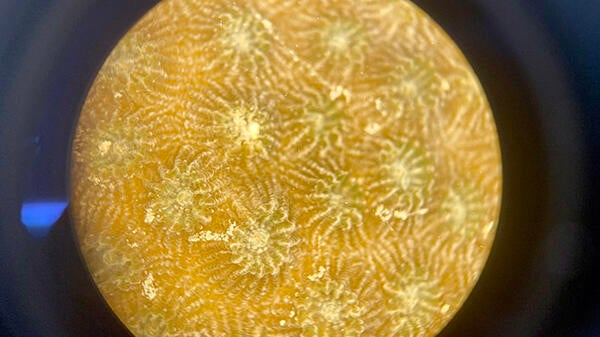After months of precautionary cancellations due to the pandemic, BIOS staff hosted several school groups on campus this June for marine science studies that complement public and private school curriculums.
A Summer of STEM
July 28, 2021
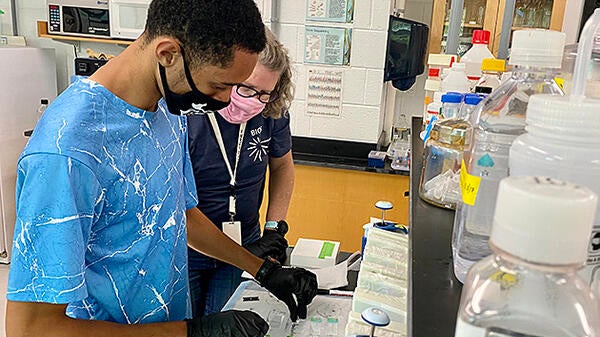
Each year BIOS selects a handful of qualified Bermudian students to participate in the Bermuda Program. The summer internship opportunity pairs participants with BIOS faculty and scientific staff to work on research projects in the fields of science, technology, engineering, and mathematics (STEM), with a focus on marine and atmospheric sciences.
Grant Brings Upgrades to Benthic Ecology Research Facility at BIOS
August 25, 2021
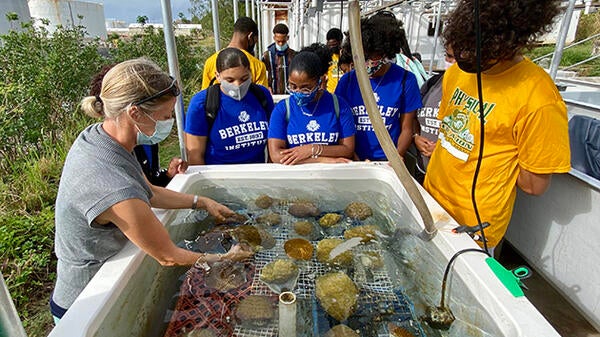
A recently awarded grant from the National Science Foundation is set to bring a variety of improvements to the existing outdoor mesocosm facility at BIOS. Originally constructed in 2018 with funding from the Heising-Simons Foundation, International, the mesocosm facility is essentially a large outdoor aquarium comprising four large tanks (400 gallon, or 1,500 liter) and eight small tanks (130 gallon, or 500 liter) housed under a removable canopy. The tanks are located adjacent to a small laboratory trailer, which is used as a staging area and for sample processing.
Summer of Coral Reef Research at BIOS
September 28, 2021
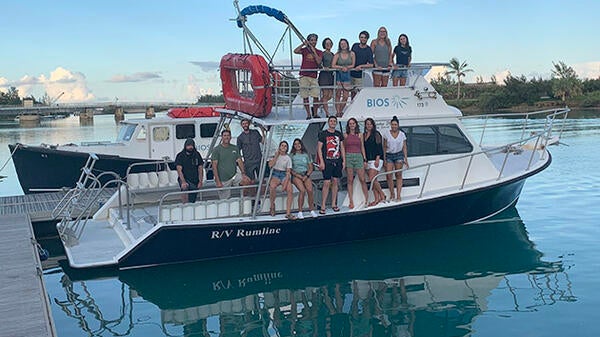
This summer, due to demand from student applicants, BIOS offered two sessions of its Coral Reef Ecology (CRE) course, one that ran from June 28 to July 16 with 13 students, and the other that ran from August 9 to August 27 with 17 students. The courses were co-taught by reef systems ecologist Eric Hochberg and marine benthic ecologist Yvonne Sawall, with teaching assistant (TA) Michael Wooster. Wooster was Hochberg’s National Science Foundation Research Experiences for Undergraduates intern in 2014 and has been a TA for three BIOS summer courses and three fall semester courses.
Exploring Dynamics of Reef Function
November 14, 2017
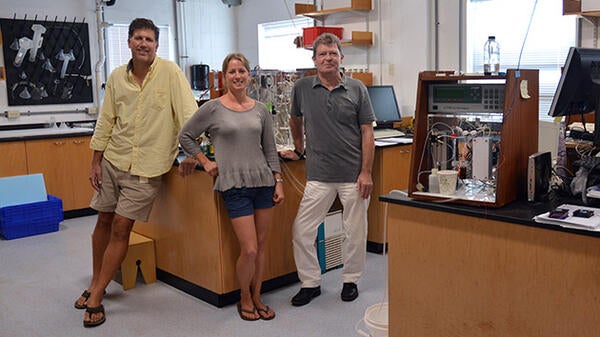
Coral reefs present scientists with a unique challenge. How do you accurately measure ecosystem processes—such as photosynthesis and calcification—within a system that changes over the course of a day and between days (depending on water flow, tides, sunlight, and weather, among other factors) and that also contains a variety of reef types and habitats (such as rim reefs, in-shore reefs, and deep water reefs)?
BIOS Scientists Make Room for Flumes
February 12, 2017
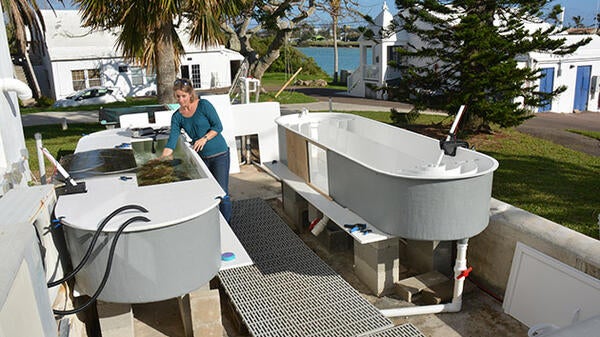
When scientists study coral reefs, they are often interested in figuring out key components of reef health; specifically, primary production—or photosynthesis—and calcification, the rate at which new reef growth occurs. For decades this has meant time and labor-intensive fieldwork, with scientists documenting global reef condition and linking what they see underwater with lab-based experiments and measurements.
Canadian Associates of BIOS Celebrates 45 Years
October 28, 2020
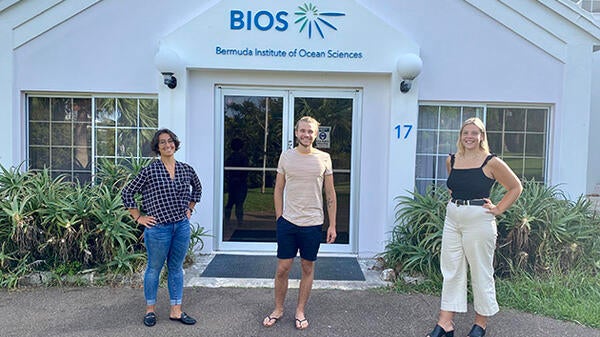
The Canadian Associates of BIOS (CABIOS) was founded in 1975 by the late Dr. Earlston Doe, a former BIOS Life Trustee and Bermuda-born Canadian oceanographer to honor the memory of his youngest son Learmont “Leary” Doe. The program was established to provide support for Canadian students, as well as students studying at Canadian universities and colleges, to participate in BIOS educational programs and research internships.
A New Frontier in Science Teaching and Learning
August 31, 2020
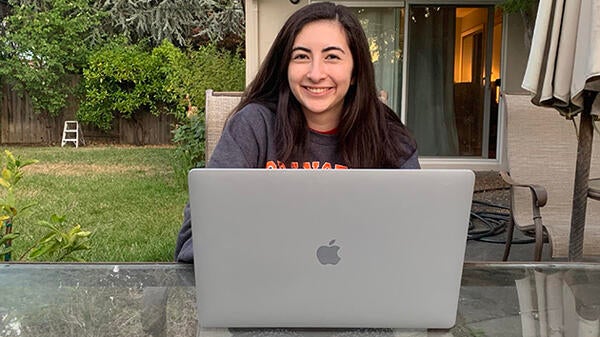
The ongoing COVID-19 pandemic forced BIOS, as well as many other research and education institutions around the world, to suspend on-site experiential learning activities, including multiple university-level summer internships. However, due to a unique alignment of circumstances, including both the proposed research project and the intern’s skill-set and technical expertise, BIOS was able to offer the Princeton Environmental Institute (PEI) Internship remotely this year.
Three Months in Bermuda: A Springboard to Success
January 26, 2018
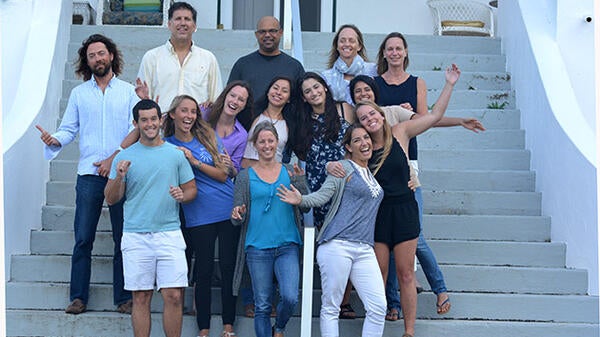
For many students, especially during their undergraduate college years, the difference between thinking about potential careers and knowing what career they want to pursue boils down to one thing: experience.
Enhancing Education Through Experience
January 29, 2019
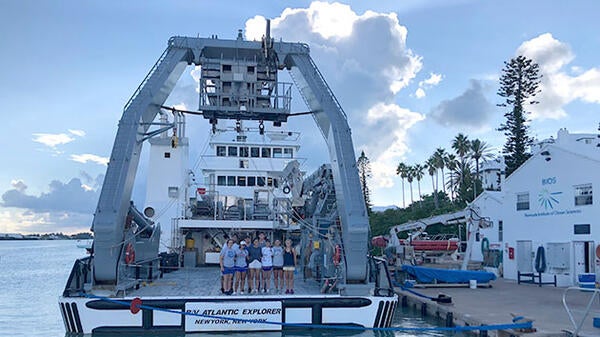
Each spring, BIOS is one of more than 350 colleges, universities, medical centers, professional organizations, and research institutions that accepts undergraduate students as part of the National Science Foundation (NSF) Research Experiences for Undergraduates (REU) program. For more than 30 years, the REU program has given U.S. students the opportunity to conduct hands-on research in science, technology, engineering, and mathematics (STEM) fields as part of their undergraduate education.
